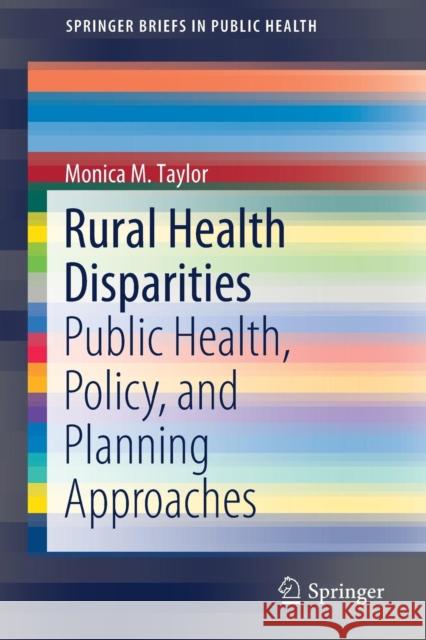Rural Health Disparities: Public Health, Policy, and Planning Approaches » książka
topmenu
Rural Health Disparities: Public Health, Policy, and Planning Approaches
ISBN-13: 9783030114664 / Angielski / Miękka / 2019 / 60 str.
Kategorie BISAC:
Wydawca:
Springer
Seria wydawnicza:
Język:
Angielski
ISBN-13:
9783030114664
Rok wydania:
2019
Wydanie:
2019
Ilość stron:
60
Waga:
0.11 kg
Wymiary:
23.39 x 15.6 x 0.38
Oprawa:
Miękka
Wolumenów:
01
Dodatkowe informacje:
Wydanie ilustrowane











